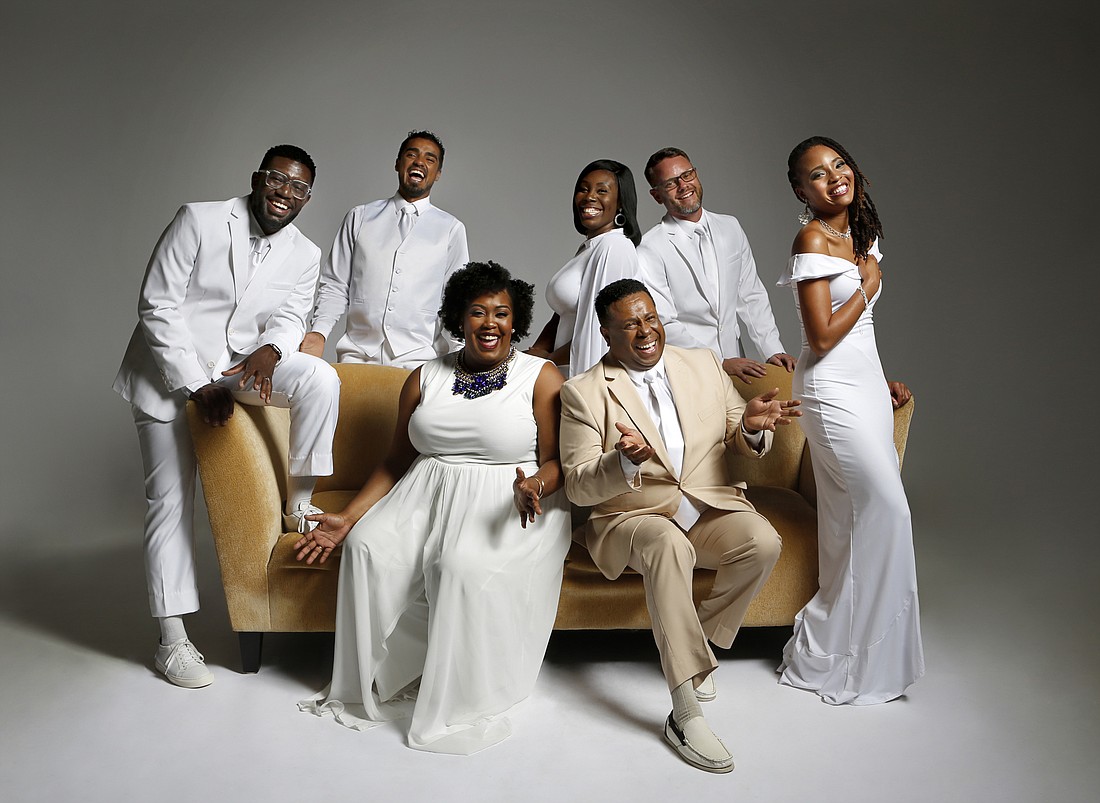- November 23, 2024
-
-
Loading

Loading

For Nate Jacobs, founder and artistic director of the Westcoast Black Theatre Troupe, the celebration of 20 years in Sarasota is more than a milestone. It’s a miracle.
“It’s incredibly meaningful because we’re still here,” Jacobs says of the anniversary. “My dream 20 years ago of establishing a platform of diversity has been realized. We are truly what people call ‘the miracle theater.’ My dream has come true.”
That dream — of becoming a professional theater that would promote the African American experience, attract diverse audiences and support local artists and youth — began in 1999. Now, WBTT is wrapping up an $8 million renovation and rolling out a new season in January.
To kick off both events, WBTT is hosting a performance called “Ain’t No Stoppin’ Us Now!” on Nov. 18 at the Van Wezel Performing Arts Hall. The show will feature RCA recording artists Next Town Down, an R&B group with Sarasota native Christopher Eisenberg, who started performing with WBTT when he was 8 and was a finalist on NBC's “America's Got Talent.”
“The training and the love I received from WBTT is and will forever be one of the most vital and instrumental keys to my growth and maturity in this industry. I always say, ‘I wouldn't be me if it wasn’t for WBTT,’” Eisenberg says. “As for the anniversary celebration, we are honored to be performing alongside so many talented artists from the past 20 years of WBTT shows [many of them I consider my brothers and sisters]. I expect it will be a night of fun, high energy and outstanding entertainment.”
Other featured artists at the Van Wezel show are the WBTT’s Ariel Blue, Michael Mendez, Leon S. Pitts II and Sheldon Rhoden. Audiences can expect to hear excerpts from many of the WBTT’s original musicals, featuring songs by Marvin Gaye, Sam Cooke, Harry Belafonte, Jackie Wilson and The Supremes.
“The performance will be a celebration of everything our patrons love about us — bringing forth entertaining shows that are high-spirited, inspirational and unique in the stories they tell,” Jacobs says. “What our guests will see is a highlight reel of our 20-year journey. We're pulling songs and material from the shows we've done and telling a part of our history, our story.”
That story began in December 1999, when WBTT was first founded as a nonprofit organization. After being a vagabond troupe for 10 years, WBTT secured a space solely for its own needs (the Orange Avenue property). In 2013, the board of trustees purchased the existing theater site, consisting of two buildings and surrounding property.
In the fall 2016, WBTT launched its $8 million Heart & Soul capital campaign to renovate both buildings and upgrade the campus. And in May, a ceremonial groundbreaking celebrated the commencement of renovations to WBTT’s theater building.
The renovation included turning the 1926 Binz warehouse building into an education and outreach center, which now houses a floor of rehearsal and instructional studios, a floor for the weekday box office and a rooftop terrace for event rental. The 1970s warehouse building theater was transformed into the Gerri Aaron and Aaron Foundation Theatre Building, encompassing the 200-seat Donelly Family Theatre, the main stage theater (with 40 extra seats) and the Howard J. Millman 50-seat black box theater.
The productions on the main stage in the new space begin Jan. 8 and run through July 12. The lineup includes “Caroline, or Change” (book and lyrics by Tony Kushner; music by Jeanine Tesori) from Jan. 8 to Feb. 16; “Your Arms Too Short to Box with God” (book by Vinnette Carroll; music and lyrics by Alex Bradford and Micki Grant) from Feb. 26 to April 5; “Ruby: A World Premiere New Musical” (book and lyrics by Nate and Michael Jacobs; music and direction by Nate Jacobs; with collaborating composer/lyricist Darin Atwater) from April 15 to May 24; and “Flyin’ West” (book by Pearl Cleage; directed by Chuck Smith) from June 3 to July 12.
Each production was carefully selected for its focus on strong female characters who have struggled and persevered, much like the WBTT has throughout the past two decades.
“What excites me most about the upcoming 20th anniversary celebration is the opportunity to offer a big, huge thank you to the community. Still today, there is a lack of diversity in theater houses, locally and across the nation,” Jacobs says. “We are one of those unique black theater institutions that has survived and thrived. When we travel to the National Black Theatre Festival, I hear from others that looking at the WBTT gives them hope for their own future. We are proud and grateful to be a part of a very rich cultural community.”